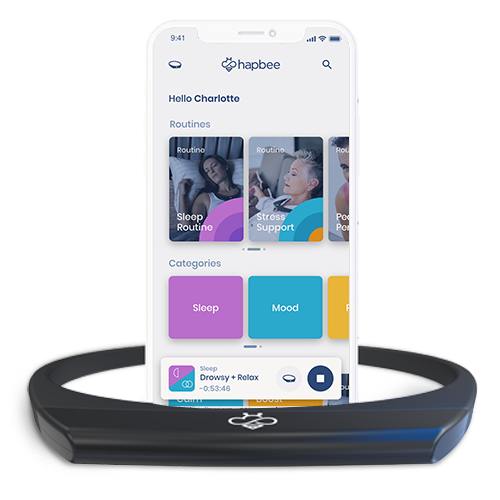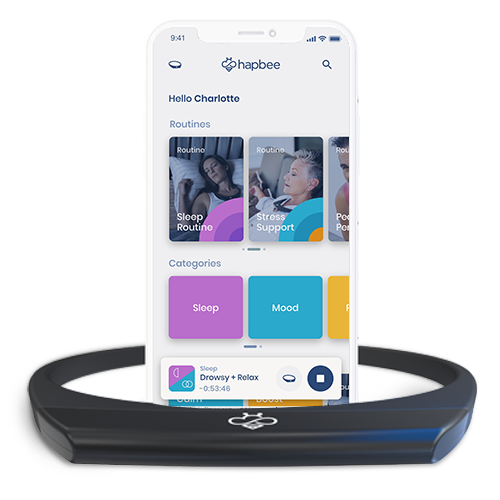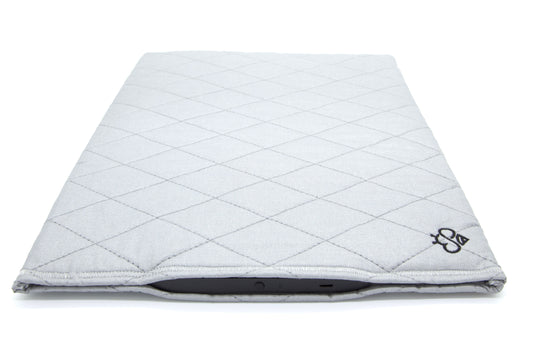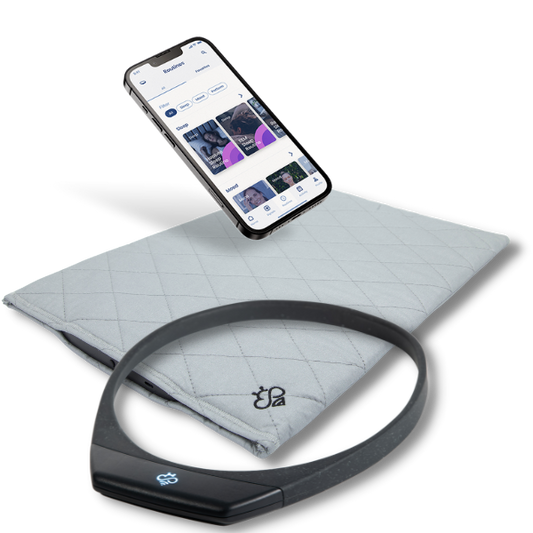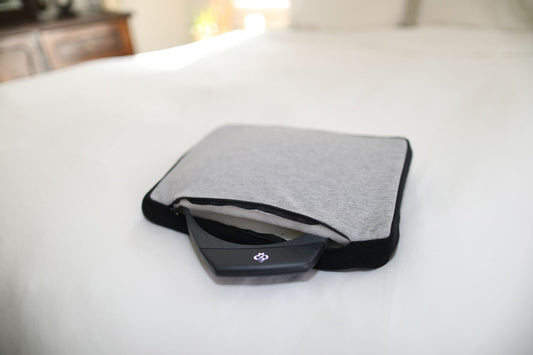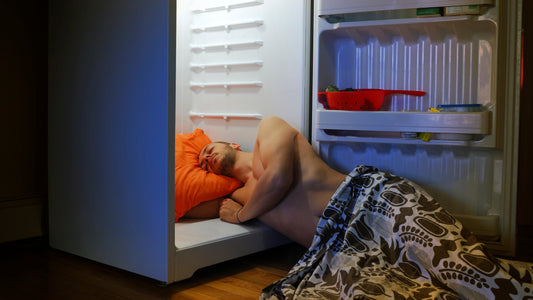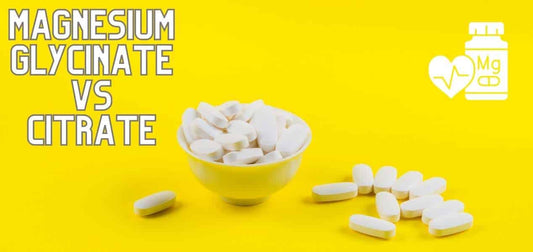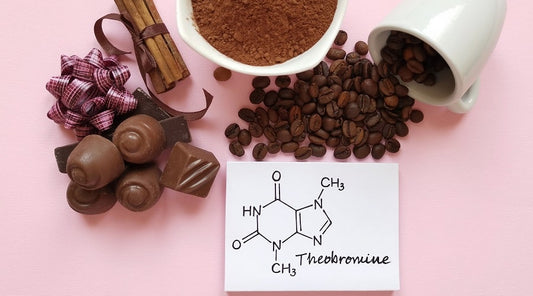Magnesium Glycinate has been making waves as a popular sleep aid, thanks in part to its buzz on the social media app TikTok. Many users have touted its effectiveness in promoting relaxation and sleep, leading to increased interest in the supplement. However, as with any supplement or medication, it's essential to understand its potential benefits and risks before trying it. In this article, we will provide you with everything you need to know about Magnesium Glycinate as a popular sleep aid.
What is Magnesium Glycinate?
Magnesium Glycinate is a form of magnesium that is commonly used as a dietary supplement to support overall health and wellness. It is composed of magnesium, a vital mineral that is involved in numerous physiological processes in the body, and glycine, an amino acid that helps improve the bioavailability and absorption of magnesium.
The supplement is often marketed for its calming effects on the nervous system, which can help promote relaxation and improve sleep quality.
Magnesium Glycinate is a highly bioavailable form of magnesium, meaning that it is easily absorbed by the body and can be utilized efficiently. It is believed to be one of the most effective forms of magnesium for promoting relaxation and reducing symptoms of anxiety and insomnia.
Unlike other forms of magnesium that can cause gastrointestinal upset or loose stools, Magnesium Glycinate is generally well-tolerated and has a lower risk of side effects. However, as with any supplement or medication, it's important to consult with a healthcare provider before taking it, especially if you have any underlying health conditions or are taking other medications.
Benefits of Magnesium Glycinate as a Sleep Aid
Magnesium Glycinate has been shown to have numerous potential benefits for sleep, making it a popular supplement for those struggling with sleep issues. Here are some of the benefits associated with Magnesium Glycinate as a sleep aid:
Improved sleep quality and duration: Magnesium Glycinate has been shown to improve the quality and duration of sleep, allowing individuals to feel more rested and alert upon waking. Studies have suggested that magnesium can help regulate the body's circadian rhythm, which is essential for maintaining healthy sleep patterns.
Reduced symptoms of insomnia and anxiety: Magnesium Glycinate has been found to reduce symptoms of insomnia and anxiety, which are often major contributors to sleep issues. It works by promoting relaxation and calmness in the body, which can help individuals fall asleep more easily and stay asleep throughout the night.
Other potential benefits for overall health and wellness: Magnesium Glycinate has been linked to a variety of other health benefits beyond sleep, including improved cardiovascular health, reduced inflammation, and enhanced bone density.
While Magnesium Glycinate is generally considered safe and well-tolerated, it's important to note that the benefits may vary depending on the individual. It's also essential to consult with a healthcare provider before taking the supplement, especially if you have any underlying health conditions or are taking other medications.
Magnesium Glycinate
Side Effects, Risks, and Precautions
Magnesium Glycinate is generally considered safe and well-tolerated when taken as directed. However, there are some potential risks and side effects to be aware of, particularly with long-term use. Some possible risks of taking Magnesium Glycinate include:
Gastrointestinal upset: While Magnesium Glycinate is generally better tolerated than other forms of magnesium, it can still cause gastrointestinal symptoms such as diarrhea, nausea, and cramping in some people. Taking the supplement with food can help reduce the risk of these side effects.
Interactions with other medications: Magnesium Glycinate can interact with certain medications, including antibiotics, diuretics, and some heart medications. It's important to talk to a healthcare provider before taking Magnesium Glycinate if you're taking any other medications to ensure there are no potential interactions.
Dosage recommendations: The recommended dosage of Magnesium Glycinate can vary depending on age, sex, and overall health status. Taking too much magnesium can lead to symptoms such as nausea, vomiting, and lethargy. It's important to follow dosage recommendations carefully and talk to a healthcare provider if you have any concerns.
Risks of long-term use: While Magnesium Glycinate is generally considered safe in the short term, there is some evidence to suggest that long-term use of magnesium supplements could potentially lead to health issues. For example, some studies have suggested that high magnesium intake may be associated with an increased risk of developing prostate cancer. However, more research is needed to fully understand the long-term risks of taking magnesium supplements.
It's important to talk to a healthcare provider before taking Magnesium Glycinate, particularly if you have any underlying health conditions or are taking other medications. Your healthcare provider can help you determine whether Magnesium Glycinate is a safe and appropriate supplement for you to take, and can provide guidance on dosage and potential risks.
How to Take Magnesium Glycinate
Magnesium Glycinate is a dietary supplement that comes in various forms, such as capsules, tablets, and powders. The appropriate dosage of Magnesium Glycinate depends on several factors, including age, gender, and health status. It's always best to consult a healthcare provider before starting any new supplement regimen.
For most adults, a daily dose of 200-400 milligrams of Magnesium Glycinate is generally considered safe. However, some people may require more or less depending on their individual needs. It's important not to exceed the recommended dosage, as high doses of Magnesium Glycinate may cause adverse effects such as diarrhea, nausea, and stomach cramps.
Timing is also important when it comes to taking Magnesium Glycinate. Many people find that taking it as part of a bedtime routine can improve sleep quality and promote relaxation. Some experts suggest taking Magnesium Glycinate a few hours before bedtime to allow the supplement to take effect. However, everyone's body is different, and some people may find it more effective to take it earlier in the day.
To improve the absorption of Magnesium Glycinate, it's best to take it with a meal. This helps the body absorb the supplement more efficiently. Additionally, taking Magnesium Glycinate with a source of fat, such as nuts, seeds, or avocado, can also increase absorption.
It's important to note that Magnesium Glycinate may interact with certain medications, so it's important to talk to a healthcare provider before starting any new supplement regimen. Overall, Magnesium Glycinate is a safe and effective sleep aid for many people when taken as directed.
Magnesium Glycinate Alternatives
While Magnesium Glycinate is a safe and effective sleep aid for many people, some individuals may prefer alternative solutions. Here are a few Magnesium Glycinate alternatives that may be worth considering:
Hapbee technology - Hapbee is a wearable device or a smart sleep pad that uses ultra-low frequencies to replicate the magnetic waves of natural compounds like melatonin, adenosine and CBD in a way that stimulates your neurotransmitters into believing these chemicals are present in your body. Unlike Magnesium Glycinate, which is a dietary supplement, Hapbee is a non-chemical solution that doesn't require ingestion. Hapbee technology may be a good option for individuals who prefer non-invasive solutions.
Melatonin - Melatonin is a hormone that the body naturally produces to regulate sleep-wake cycles. Melatonin supplements are a popular alternative to Magnesium Glycinate and may be particularly helpful for individuals who have trouble falling asleep. Melatonin supplements are available over-the-counter and come in various forms, including capsules, tablets, and gummies.
Valerian root - Valerian root is a natural herb that has been used for centuries to promote relaxation and improve sleep quality. Valerian root supplements are available in capsule form and may be a good alternative to Magnesium Glycinate for individuals who prefer natural remedies.
Lifestyle changes - Making lifestyle changes can also be an effective way to improve sleep quality. This may include developing a consistent sleep routine, limiting screen time before bed, and avoiding caffeine and alcohol in the evenings.
It's important to note that just like Magnesium Glycinate, these alternatives may not be effective for everyone. It's always best to consult a healthcare provider before starting any new supplement or lifestyle regimen.
Conclusion
Magnesium Glycinate is a popular sleep aid that may offer numerous benefits for individuals who have trouble falling or staying asleep. Studies have shown that Magnesium Glycinate can improve sleep quality, reduce anxiety, and help manage other health conditions. However, like any supplement, it's important to consult with a healthcare provider before starting to take it regularly.
Additionally, while Magnesium Glycinate may be effective for some individuals, others may find alternative solutions more suitable. Hapbee technology, melatonin, valerian root, and lifestyle changes are just a few alternatives that may be worth considering.
Overall, Magnesium Glycinate is a safe and effective supplement for improving sleep quality, but it's important to weigh the potential benefits and risks before starting to take it regularly. With the right guidance and advice, Magnesium Glycinate may be a useful addition to a good nighttime routine and help individuals get the restful sleep they need.
At Hapbee Technologies, we are proud to have helped countless users achieve better sleep and overall health and wellbeing. In fact, 95% of our users would recommend our smart sleep pad to others! But don't just take our word for it - here's what some of our happy customers have to say:
- "The Hapbee device has helped me fall asleep more easily and stay asleep longer than I have in years!" - Mary T.
- "I was skeptical at first, but after just a few nights of using the Hapbee device, I noticed a significant improvement in my sleep quality. It's made a real difference in my life!" - John R.
- "I love my Hapbee device! It's like having a personal relaxation coach right at my fingertips. I feel more calm and relaxed when I use it, and my sleep has never been better." - Sarah H.
Experience the power of Hapbee Technologies' smart sleep pad for yourself and start enjoying better sleep and better health today. With our proven technology and countless satisfied users, you can trust that our device is the solution you need to achieve the restful, rejuvenating sleep you deserve.
